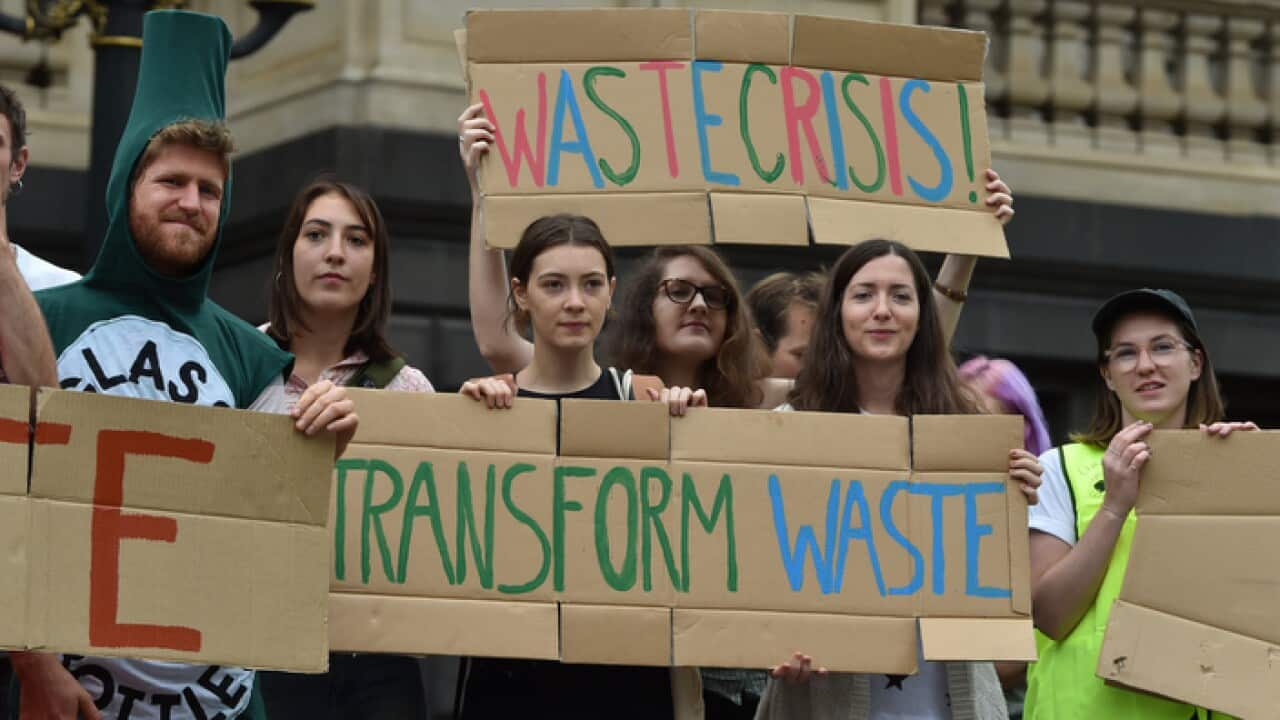Although, majority of Australian recognize the importance of recycling, many are “confused” as to what can and cannot be recycled says Pip Kiernan, chair of Clean up Australia.
Putting the wrong items into the recycling bin or bagging them can "contaminate" the rest of the recyclables, sending the whole bin load to landfill instead.
Studies have shown that many people place items into the recycling bin, even when they are unsure if the item is recyclable. Free online tools such as Greenius by Cleanaway, can provide clear bin instruction specific to your local area.
Free online tools such as Greenius by Cleanaway, can provide clear bin instruction specific to your local area.

Are we good recyclers? Source: Getty Images/Jessie Casson
But a common rule that we should all follow, is to only put loose, clean, and dry recyclables into the kerbside recycling bin. Think of these recyclables as resources, which can be given a new life. While item such as soft plastic cannot be recycled through your kerbside recycling bin, they are nevertheless recyclable. But to do so, you must bring them to a designated drop off points around the country.
While item such as soft plastic cannot be recycled through your kerbside recycling bin, they are nevertheless recyclable. But to do so, you must bring them to a designated drop off points around the country.

Put loose, clean and dry recyclables into the kerbside recycling bin Source: Getty Images/Elva Etienne
REDcycle has been providing ways to recover and reuse soft plastics, for over a decade. They have over 1,900 drop off locations around the country, including in all the major supermarkets.  Rebecca Gleghorn is the marketing and communication manager at RED Group.
Rebecca Gleghorn is the marketing and communication manager at RED Group.

Photographing clothes Source: Getty Images/Su Arslanoglu
“Four million pieces of soft plastics are returned to REDcycle bins every single day. Our average is four grams, so that’s 16,000kgs of soft plastics saved from and diverted from landfill every single day across the country, and that’s increasing. It increased over 200% within the Financial Year from 2020 to 2021”
Councils may also have designated days to collect other household wastes that cannot be recycled, such as e-wastes, white goods and x-rays. They may also collect hazardous chemicals and batteries for safe disposal.
If we all take a moment and observe how we are recycling or disposing of our waste, there are many changes we can make to play our part for the planet. And that change can start today.
Click on the player above to listen to this information in Punjabi.


